During the Eurofruit Southern Hemisphere Congress 2010 (Punta del Este-Uruguay-1-3 December 2010), John Wang, founder of Lantao Shanghai Great Harvest-Chinese company which imports premium fruit from all over the world-has given an overview of the fresh produce business in China.
The largest fresh produce market in the world
China, besides being the most densely populated country, is also the largest fruit and vegetable market in the world: in only 3 hours, for example, 210,000 boxes of cherries may be sold in a city such as Guangzhou (Canton).
In the period 2004-2008, per capita food purchase in urban Chinese areas has grown by 17% a year (see table below).
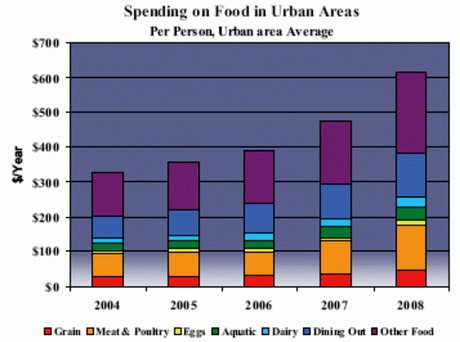
As for fruit, China needs products that meet the highest quality standards and has its own rules to which exporters must stick. Among the more eaten fruit products there are all the main "commodities": Gala apples, Red Globe grapes, cherries, etc..
Only 5% of fruit and vegetables are sold via supermarkets
Although in urban Chinese areas supermarket chains have a market share of 30% of food sales, that percentage falls to 5% as for fruit and vegetables.
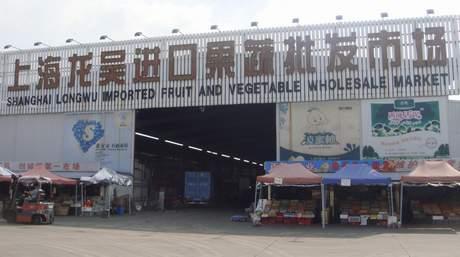
Wholesale market in Shanghai for the sale of imported fruit and vegetables.
John Wang urges exporters to not underestimate the importance of traditional markets in China, especially because many Chinese get into the habit of doing the shopping every day, putting together the ingredients to cook a meal or two.
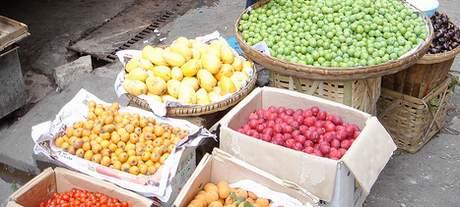
The challenge in the future is how to import fruit more directly in China without the transit through the traditional channels of Hong Kong and Taiwan.
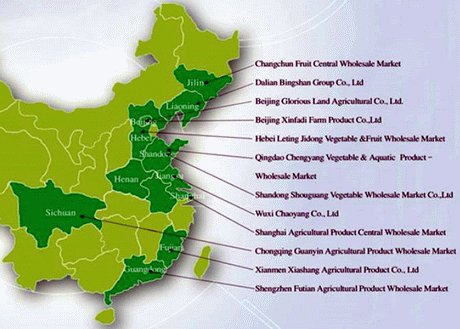
Some of the major wholesale markets and importers of agricultural products in China, on the basis of geographical location.
Lantao owns a network of five distribution centers, located in the areas of Shanghai, Guangzhou (Canton), Beijing, Shenyang and Zhengzou.
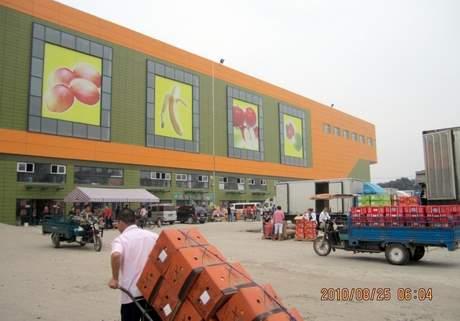
The Lantao warehouse in Shenyang.
The cultural elements to work successfully in China
The last but not least important aspect considered in the report by John Wang is the theme of the cultural approach to the Chinese market and its operators. If people don't dive into what the Chinese call "guanxi", there will be no real opportunities to establish lasting business relationships.
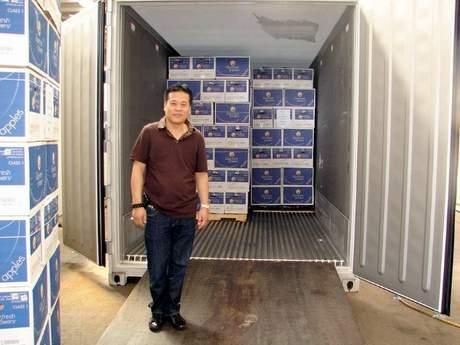
John Wang, founder of Lantao Shanghai Great Harvest.
At its most basic, guanxi describes a personal connection between two people in which one is able to prevail upon another to perform a favor or service, or be prevailed upon. The two people need not be of equal social status. Guanxi can also be used to describe a network of contacts, which an individual can call upon when something needs to be done, and through which he or she can exert influence on behalf of another. Closely related concepts include that of "ganqing", a measure which reflects the depth of feeling within an interpersonal relationship, "renqing", the moral obligation to maintain the relationship, and the idea of "face", meaning social status, propriety, prestige, or more realistically a combination of all three (Source: en.wikipedia.org).
"There is no competition in the Chinese market. Patience is the most important gift" concludes John Wang.
The largest fresh produce market in the world
China, besides being the most densely populated country, is also the largest fruit and vegetable market in the world: in only 3 hours, for example, 210,000 boxes of cherries may be sold in a city such as Guangzhou (Canton).
In the period 2004-2008, per capita food purchase in urban Chinese areas has grown by 17% a year (see table below).

As for fruit, China needs products that meet the highest quality standards and has its own rules to which exporters must stick. Among the more eaten fruit products there are all the main "commodities": Gala apples, Red Globe grapes, cherries, etc..
Only 5% of fruit and vegetables are sold via supermarkets
Although in urban Chinese areas supermarket chains have a market share of 30% of food sales, that percentage falls to 5% as for fruit and vegetables.

Wholesale market in Shanghai for the sale of imported fruit and vegetables.
John Wang urges exporters to not underestimate the importance of traditional markets in China, especially because many Chinese get into the habit of doing the shopping every day, putting together the ingredients to cook a meal or two.

The challenge in the future is how to import fruit more directly in China without the transit through the traditional channels of Hong Kong and Taiwan.

Some of the major wholesale markets and importers of agricultural products in China, on the basis of geographical location.
Lantao owns a network of five distribution centers, located in the areas of Shanghai, Guangzhou (Canton), Beijing, Shenyang and Zhengzou.

The Lantao warehouse in Shenyang.
The cultural elements to work successfully in China
The last but not least important aspect considered in the report by John Wang is the theme of the cultural approach to the Chinese market and its operators. If people don't dive into what the Chinese call "guanxi", there will be no real opportunities to establish lasting business relationships.

John Wang, founder of Lantao Shanghai Great Harvest.
At its most basic, guanxi describes a personal connection between two people in which one is able to prevail upon another to perform a favor or service, or be prevailed upon. The two people need not be of equal social status. Guanxi can also be used to describe a network of contacts, which an individual can call upon when something needs to be done, and through which he or she can exert influence on behalf of another. Closely related concepts include that of "ganqing", a measure which reflects the depth of feeling within an interpersonal relationship, "renqing", the moral obligation to maintain the relationship, and the idea of "face", meaning social status, propriety, prestige, or more realistically a combination of all three (Source: en.wikipedia.org).
"There is no competition in the Chinese market. Patience is the most important gift" concludes John Wang.





